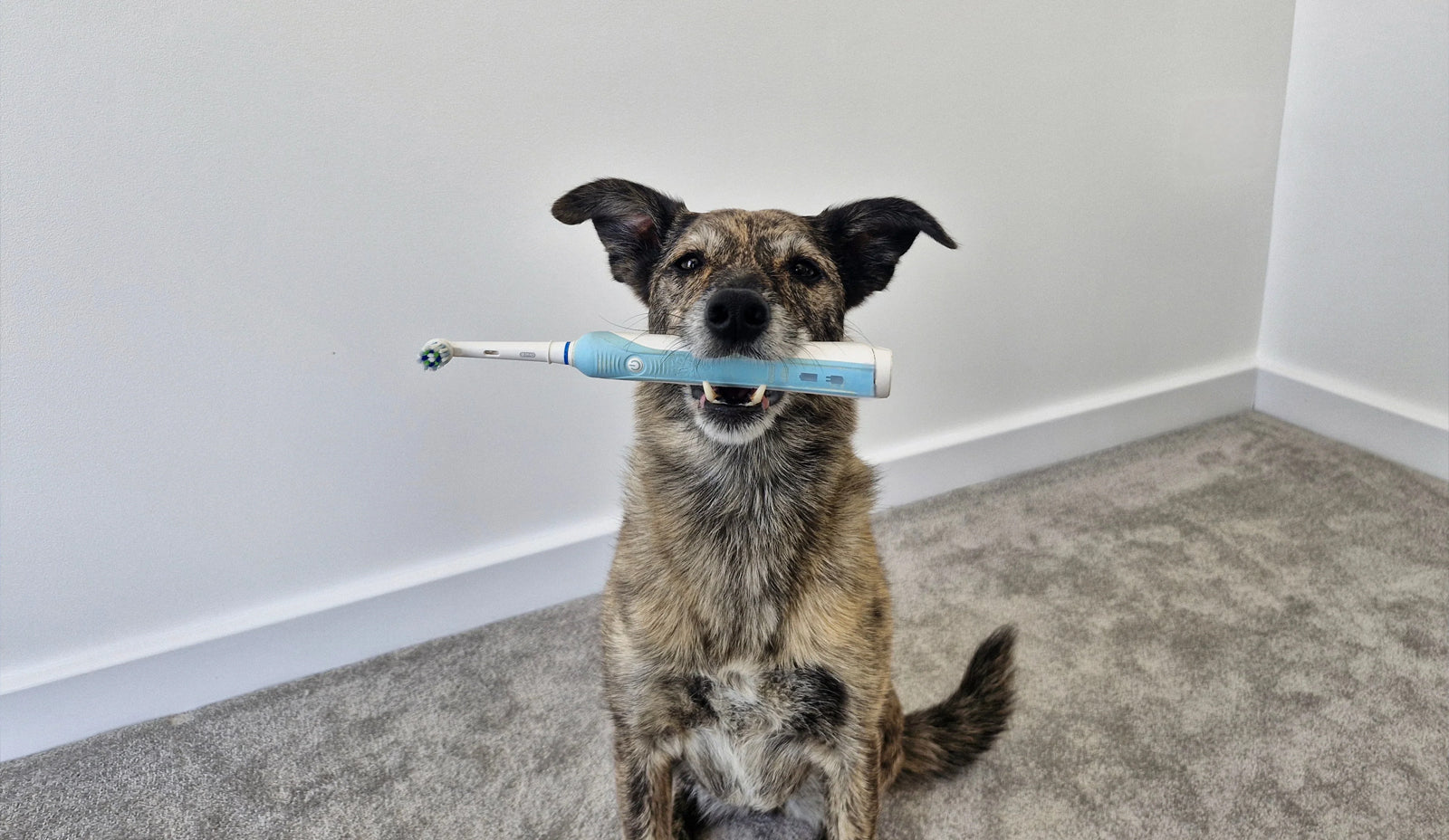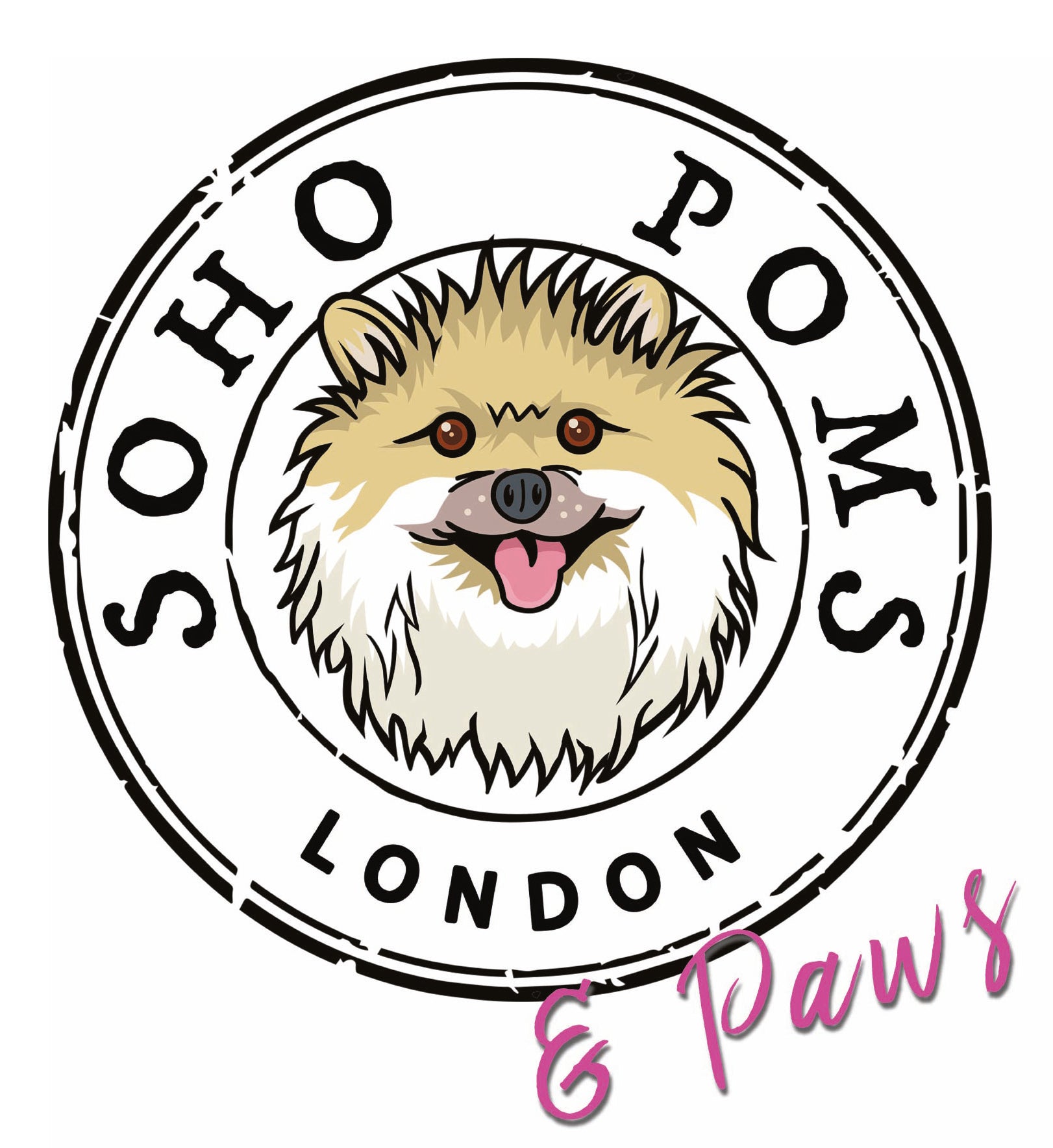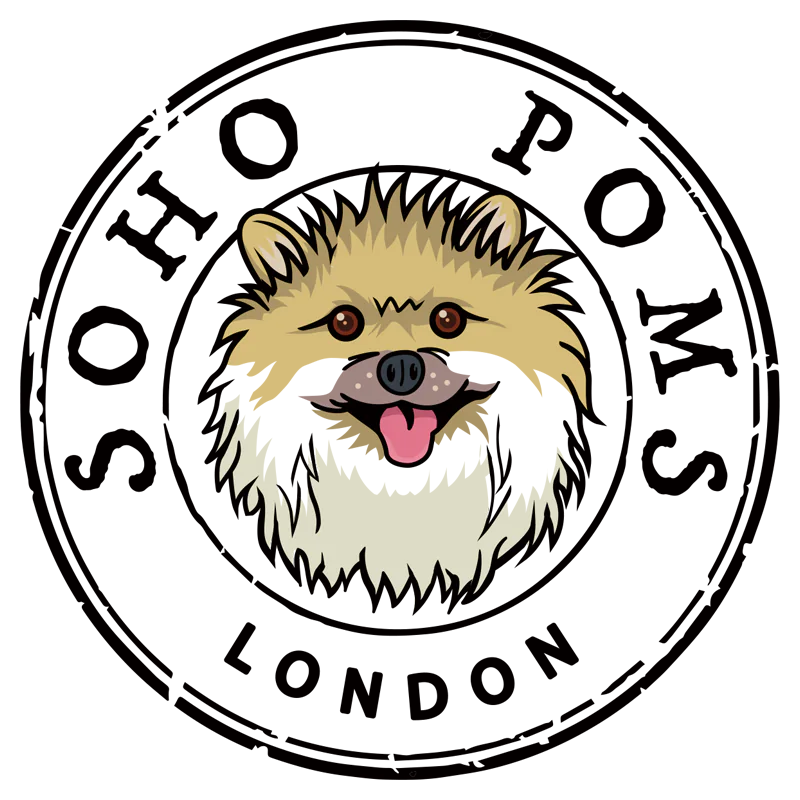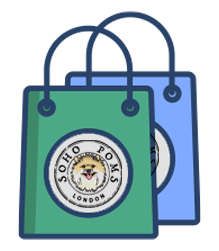Artikel: The importance of dental care for dogs (Especially small breeds)

The importance of dental care for dogs (Especially small breeds)
Why Dental Care Matters for Dogs
Dental care is one of the most overlooked aspects of dog health, yet it plays a major role in your dog’s overall wellbeing. This is especially important for small breeds, like Pomeranians, as their mouths are more compact and more prone to dental issues.
Because smaller breeds often have crowded teeth due to their compact jaw size, food particles and bacteria can get trapped more easily. This allows plaque and tartar to build up faster, which can lead to gum disease, tooth decay, and even tooth loss if left untreated.
Signs that your dog’s mouth may need attention include bad breath, red or inflamed gums, pawing at the mouth, or showing discomfort while eating. Catching these early can save your dog pain and prevent costly dental procedures later.
How to Take Care of Your Dog’s Teeth
-
Daily Brushing
Brushing your dog’s teeth every day is the most effective way to prevent dental disease. Use a toothpaste formulated specifically for dogs, as human toothpaste can be harmful, and choose a small, soft-bristled toothbrush designed for pets. For small breeds, a finger toothbrush can make it much easier to reach the tight spaces at the back of the mouth. -
Use Dental Gels
Dental gels can be a good option on days when brushing is not possible. They help reduce plaque, control bacteria, and freshen breath. Simply apply the gel as directed; some can be smeared along the gums and will work without brushing. -
Offer Dental Chews and Bones
Dental chews are a tasty way to help keep teeth clean between brushings. Chew bones, especially those designed for dental health, can gently scrape off plaque and massage the gums. Always choose an appropriate size and hardness for your dog’s breed and chewing style to avoid broken teeth or choking hazards. Natural chew options are also available, and we will be sharing some easy DIY recipes in an upcoming guide. -
Schedule Regular Vet Check-Ups
Routine veterinary visits are essential for monitoring dental health. Your vet can identify early signs of gum disease, loose teeth, or infections before they become serious. If you notice persistent bad breath, swelling, or bleeding gums, schedule an appointment promptly.
Why Good Dental Hygiene Protects More Than Just the Mouth
Poor dental care can lead to much more than unpleasant breath. Bacteria from the mouth can enter the bloodstream and travel to vital organs, including the heart, kidneys, and liver, where it may contribute to serious health problems. Preventive care is always easier and far more affordable than treating advanced dental disease.
Pro Tip
Start dental care early, ideally when your dog is still a puppy. This helps them get used to the process and reduces stress later in life. Always praise and reward calm, cooperative behaviour during brushing so they associate the routine with something positive.
We will soon be sharing a complete guide to homemade chew treats that naturally support dental health. It will be a fun, nutritious, and completely dog-approved way to care for your pet’s smile.







